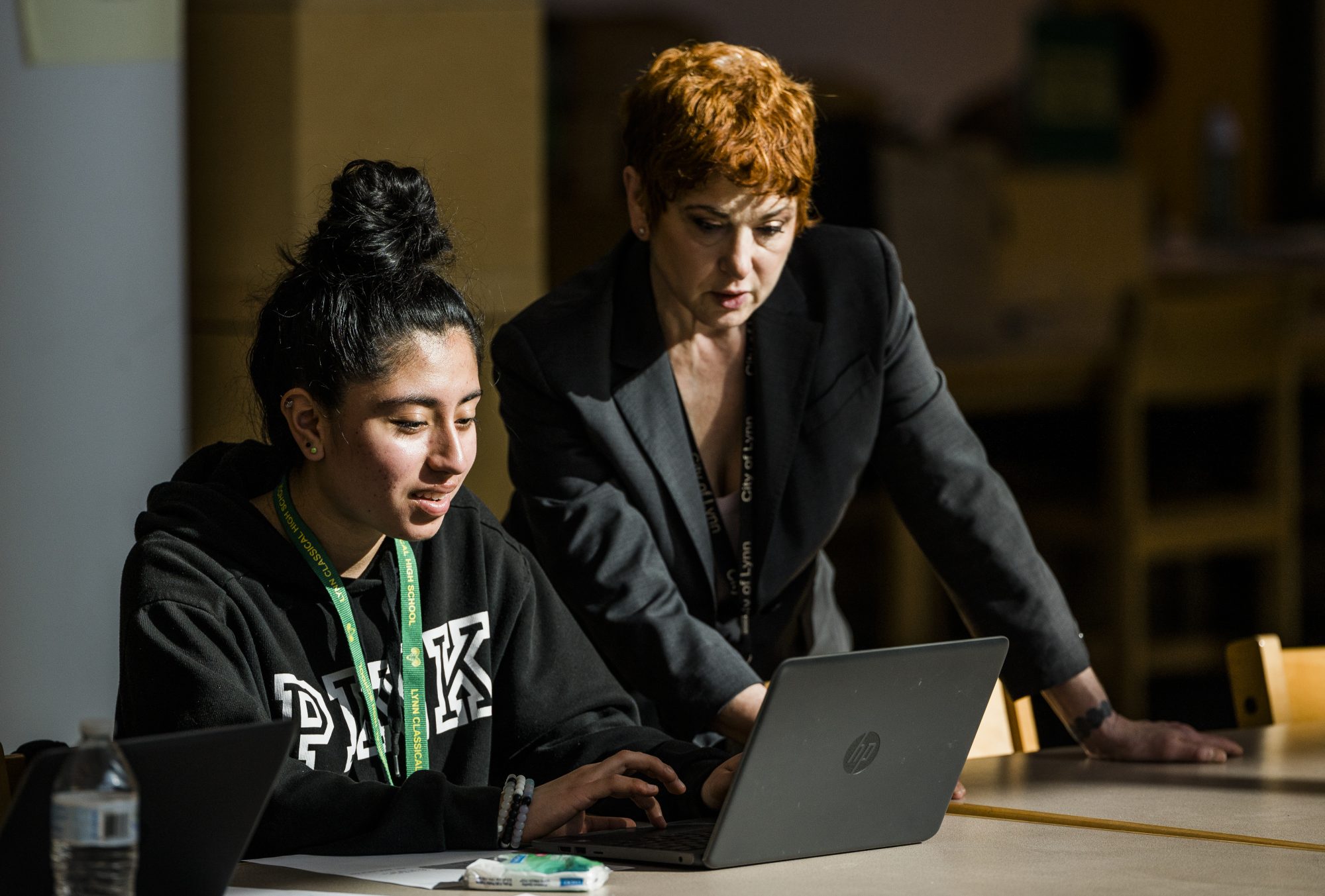LYNN — 75 Lynn Classical students are working with the Grand Army of the Republic (GAR) Hall and Museum to identify and find the descendants of nearly 2,000 Civil War soldiers.
“Instead of trying to find ancestors, we’re trying to find descendants,” said GAR Curator Wendy Joseph.
The GAR museum and hall, located at 58 Andrew St., is one of the country’s last GAR buildings still dedicated toward honoring the men who fought to preserve the Union. Walls enclosing the museum’s third floor hall are filled corner-to-corner with Union soldiers’ names and portraits.
Last week, Joseph, Lynn Classical history teacher David Poland, and former Lynn Museum President Steve Rima started a weekly genealogy class for honors history students. Each week, Rima meets with Poland’s class and helps the students use Ancestry.com to track down the soldiers’ records and navigate their life stories.
On Friday morning, Rima helped the students track down James Adgurson, a Black Civil War veteran born in Tennessee in the early 1800s. Rima guided the students through census records, birth certificates and marriage certificates, stopping to provide them with historical anecdotes on the Civil War.
“The students are learning how to do real life research, and at the same time, they’re engaging with Civil War history in a way that’s exciting for them,” Poland said.
Once the students have tracked down the grandchildren and great-grandchildren of each soldier, which Poland expects to be completed in a couple of years, they will write the descendants letters inviting them to visit Lynn’s GAR museum and see their ancestors’ photographs on the wall.
Rima said that he originally pitched the idea for a GAR genealogy class in 2018, but that technological issues and the COVID-19 pandemic got in the way. Rima recently retired from his position as a McDonald’s franchise owner, and felt it was his responsibility and duty to honor the men who fought to preserve the Union. He said the students have shown a level of interest and curiosity from the research that likely couldn’t be seen in a regular history class.
“Maybe their teacher told them 600,000 people died, but they don’t understand from the standpoint of ‘I’m 18 years old, do I enlist or do I hang back and try not to get drafted? Do I want to fight artillery?’” Rima said. “I’m teaching them about after the war, when people walked around with one arm and one leg because they didn’t have the medical abilities to repair a gunshot wound.”
Owen LaPierre, a 16-year-old student taking part in the program, said he enjoyed learning about the Civil War, and that he thought it was especially fascinating to investigate the lives of those who fought in it. LaPierre added that he enjoyed going through records online.
“It’s just interesting to learn about their lives, and how they used to live back then,” LaPierre said.
Tyler Whitten, a 15-year-old student at Lynn Classical, said he liked the challenge of trying to track down the soldiers’ family history. He said he was a little nervous he might get one of the names wrong and falsely identify someone as a descendant of a soldier.
“I have to be careful,” Whitten said. “I don’t want to mix up a name and for them to say ‘That’s not my grandpa.’”

